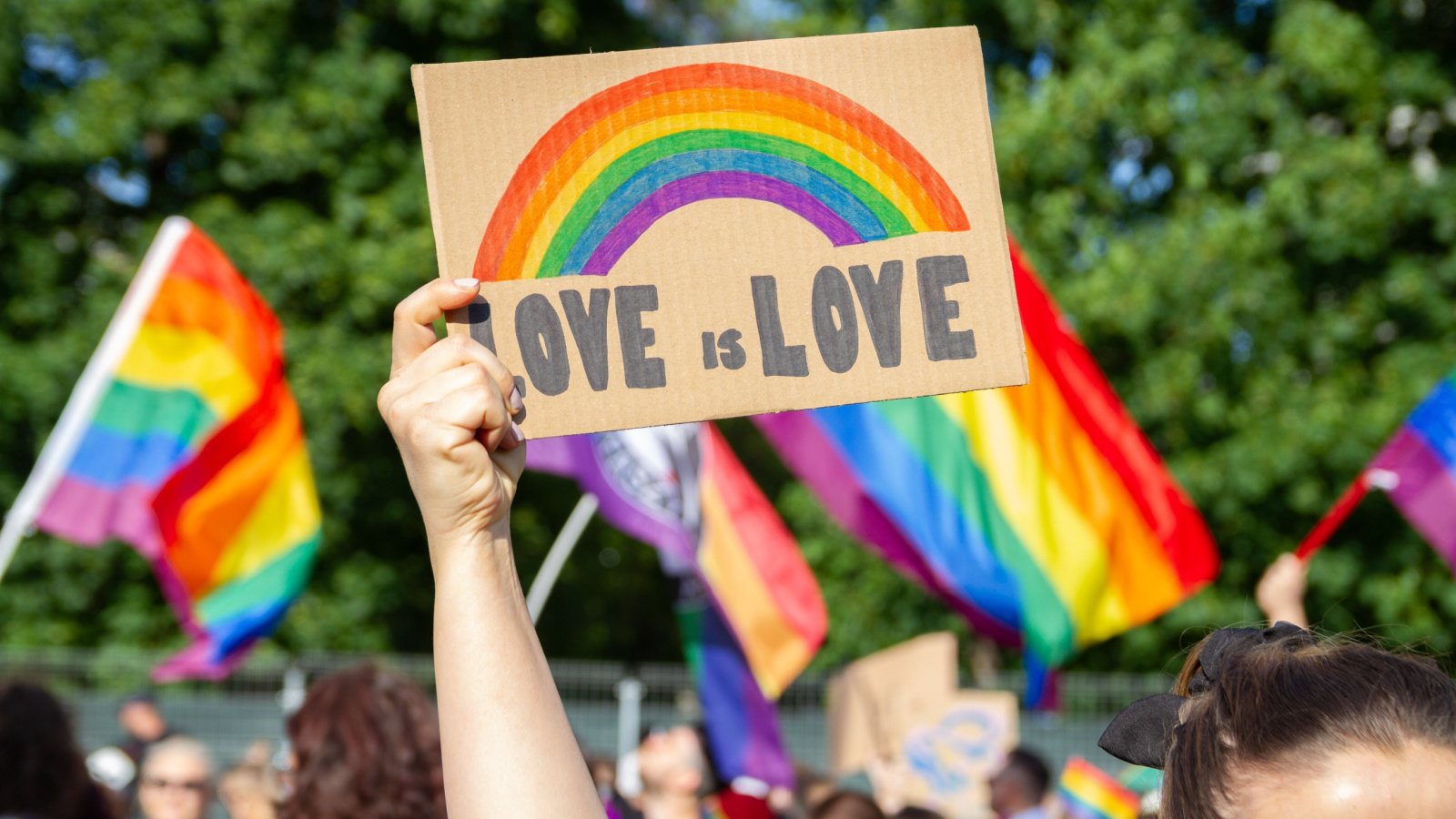Many countries provide benefits such as lengthy paid parental leave or extensive vacation time, which stand in stark contrast to what the U.S. offers. Exploring these freedoms gives insight into alternative approaches to governance and social welfare that prioritize community well-being.
Paid Parental Leave

Many countries mandate paid parental leave, offering months of paid leave to both parents, a benefit not guaranteed in America. Countries like Sweden and Norway offer extensive paid leave that can be shared between parents, promoting gender equality and child welfare. This approach supports families significantly more than U.S. policies.
Election Day as a Public Holiday

In nations like Australia and South Korea, Election Day is a public holiday, ensuring that everyone has the opportunity to vote. This contrasts sharply with the U.S., where voters must often balance work commitments and polling hours.
Universal Health Care

Countries like Canada and the United Kingdom provide universal healthcare to all citizens, funded through taxes, ensuring that no person is denied medical treatment due to cost. In contrast, the U.S. healthcare system often ties coverage to employment and can incur high out-of-pocket costs, making healthcare access unequal.
Free Higher Education

Many European countries, including Germany and France, offer free or low-cost higher education to their citizens, which starkly contrasts with the high cost of college in the America. This commitment to education removes financial barriers and encourages a highly educated workforce.
Gun Control

Countries like Japan and the United Kingdom enforce strict gun control laws that significantly limit gun ownership, which contrasts with America, where gun ownership is a constitutionally protected right. These countries experience far lower gun-related death rates.
Privacy Laws

The European Union’s General Data Protection Regulation (GDPR) provides citizens with significant control over their personal data, a level of protection not paralleled in the U.S. This legislation forces companies to ensure privacy and transparency in data handling.
Prisoner Voting Rights

Several countries, including Canada and Finland, allow all prisoners to vote, a right that varies significantly in America, where many states disenfranchise felons. This inclusive approach emphasizes rehabilitation and the importance of civic engagement, even for those incarcerated.
No Death Penalty

Many developed nations, such as Australia and all European Union countries, have abolished the death penalty, considering it a human rights violation. In contrast, the U.S. still practices capital punishment.
Drinking Age Laws

In most European countries, the legal drinking age is 18 or even lower, reflecting a societal approach that aims to integrate alcohol consumption responsibly into daily life. This is in stark contrast to the U.S., where the legal drinking age is 21.
Right to Disconnect

Countries like France have laws that protect the right of workers to disconnect from work-related electronic communications outside of work hours. This law combats the encroachment of work into personal time and reduces burnout, something not legislated in the U.S.
Public Nudity

In countries like Germany, public nudity is legal in designated areas, such as specific parks and beaches, reflecting a more relaxed attitude toward the human body. The U.S. typically has stricter laws regarding public decency, which can vary widely from one locality to another.
Legal Prostitution

Countries like the Netherlands and New Zealand have legalized and regulated prostitution, aiming to improve the safety and rights of sex workers. This contrasts with the U.S., where prostitution is illegal in most states, often leading to unsafe conditions for sex workers. The regulation of this industry aims to reduce crime and improve public health.
Dual Citizenship

Unlike the U.S., which has restrictive policies on dual citizenship, countries like Ireland and Italy actively encourage it, especially for those with ancestral ties. These policies recognize and foster a sense of heritage and belonging across borders.
Public Breastfeeding Laws

In Norway and many other countries, laws explicitly protect the right of mothers to breastfeed in public, viewing it as a child’s right. In contrast, while many American states have laws that allow public breastfeeding, societal acceptance is not as widespread.
Voter Pre-registration

Countries like Sweden allow citizens to pre-register at 16, though they cannot vote until 18, facilitating a seamless transition into civic participation. This contrasts with the U.S., where voter registration requirements can vary significantly and sometimes hinder voting access.
Absence of Tips

In countries like Japan and South Korea, tipping is not customary and can even be considered rude, as good service is expected as standard and not something extra to be rewarded. This contrasts with the U.S., where tipping is a deeply ingrained social norm.
Sabbatical Leave

In countries like Belgium, employees are often entitled to take a sabbatical leave, allowing individuals to pursue personal development or simply take an extended rest. Such policies show a commitment to the long-term health and productivity of workers.
Weeks of Paid Vacation

Most European countries mandate a minimum of four weeks of paid vacation per year, far more than the typical U.S. worker can expect. This standard is based on the belief that prolonged time away from work increases productivity and decreases burnout.
Bike-Friendly Cities

Cities like Amsterdam and Copenhagen are designed to be incredibly bike-friendly, encouraging cycling as a primary mode of transportation with extensive bike lanes and bike parking areas. In contrast, most American cities are designed for cars, with cycling as an afterthought. These policies not only reduce traffic and pollution but also promote a healthier lifestyle.
Legal Same-Sex Marriage

While the U.S. legalized same-sex marriage nationwide in 2015, countries like the Netherlands were pioneers, legalizing it as early as 2001. This early adoption highlights a progressive approach to equality and human rights. Such legislative leadership fosters an inclusive society where all individuals’ rights are recognized and protected.
Youth Voting

Countries like Argentina, Austria, and Brazil allow citizens to vote at 16 in some or all elections, empowering youth to influence decisions that will shape their future. This contrasts with the U.S., where the voting age is 18 across all states. Lowering the voting age is seen as a way to engage young people in the political process early on.









Es ist ein Restaurant mit dem Thema Vereinigte Staaten, das
eine Vielzahl von Steaks, Wein und Bieren aus den gesamten USA anbietet.
Eines der kultigsten Restaurants in New York-New York, ein irisches Restaurant
und Pub, das 2003 eröffnet wurde. März 2014 mit einer großen Eröffnungsparty eröffnet, die
mit Live-Musik auf der Brooklyn-Brücke des Hotels begann und von dem aus Brooklyn stammenden DJ Jonny Santos gestaltet wurde.
Das neue Geschäft würde mit der nahe gelegenen M&M’s World am Showcase
Plaza konkurrieren, die fast 20 Jahre vor der Ankündigung eröffnet
wurde.
Seit 1997 bietet das Themenhotel seinen Gästen mit 2.024 Zimmern, eine lockere Atmosphäre mit Ostküsten-Flair inmitten der Wüstenstadt, inklusive Pool,
Spa und Gym.Die verkleinerte Manhattan-Skyline, mit der
Freiheitsstatue, dem Empire State Building, dem Chrysler Building, der Brooklyn Bridge und nicht zuletzt einer Achterbahn, welche die Gäste in kleinen Yellow Cabs um und durch das Hotel, durch Loopings und
Schrauben katapultiert, gehört zu den aufwendigsten und
beliebtesten Installationen auf dem Las Vegas Strip.Gegenüber des MGM
Grand Hotels, am südlichen Las Vegas Boulevard, über Brücken verbunden mit u.a.
Erlebe den ultimativen Luxus in Las Vegas mit unseren handverlesenen Luxushotels.
Wie bei den meisten Themenhotels in Las Vegas sind die Zimmer (dieses Hotel
hat etwa 2.000) nicht die größte Attraktion, obwohl sie durchaus angemessen sind.
Die Themenhotels in diesem Teil der Stadt leiden unter langen Schlangen zu den Stoßzeiten beim Einchecken, aber der Kundenservice
ist zum Glück höflicher als im echten New York und alle scheinen zufrieden zu sein. Das New York-New
York Hotel & Casino ist ein weiteres der beliebtesten Themenhotels in Las
Vegas. Shake ShackDas 2013 eröffnete Shake Shack, das die
ESPN Zone des Resorts ersetzt, ist eine riesige Burger-Bude am Straßenrand direkt neben dem Park.
Die New York Pizzeria bietet das typische NYC-Pizza-Erlebnis, während das
Il Fornaio und der irische Pub Nine Fine Irishmen ebenfalls sehr beliebt sind.
Das Frühstück kann im Restaurant America eingenommen werden, das gekochte Frühstücksteller ab 9,99 $ (7,
50 £) sowie eine umfangreiche Speisekarte anbietet. Der Full-Service-Salon bietet nicht nur Haar- und Nagelpflege, sondern auch Spray-Tanning und Make-up-Anwendungen. Von schnellen Snacks über saftige Steaks bis hin zu einem
Buffet bietet das New York-New York eine große Auswahl an Speisen.
References:
https://online-spielhallen.de/pistolro-casino-freispiele-ihr-schlussel-zu-kostenlosen-drehungen-und-gewinnen/
Customarily, the majority leader and minority leader
are accorded priority during debates even if another senator rises first.
Usually, such delays are used while waiting for a senator to reach the
floor to speak or to give leaders time to negotiate.
In practice, senators rarely request quorum calls to establish the quorum as present; instead, quorum calls are generally used
to temporarily delay proceedings. Holds are considered private communications between a senator
and the leader, and are sometimes referred to as “secret holds”.
A hold may be placed for any reason and can be lifted by the senator
who placed it at any time.
Parking rates at Crown Melbourne vary depending on the duration of your stay and the
parking area you choose. Looking for a safe and secure parking space in Southbank?
Looking for parking near 344 City Rd, Southbank VIC 3006 Please
Contact me Therefore, whether you’re planning a daily visit or require
monthly parking, Crown Melbourne has suitable options to meet your needs.
Historically, cloture has rarely been invoked because bipartisan support is usually necessary to obtain the required supermajority,
so a bill that already has bipartisan support is rarely subject to threats of
filibuster. In the 1970s, the vote requirement for cloture was lowered and
a new process of scheduling Senate business was instituted, in turn ending the “talking filibuster”.
Filibuster efforts continued until 1917, when in response to a filibuster during World
War I, President Woodrow Wilson demanded there be an ability to force a Senate vote.
The national bank bill did pass, but Calhoun, and other Southern senators,
continued using this tactic. The filibuster is a tactic used to defeat
bills and motions by prolonging debate indefinitely.
In most cases, senators do not refer to each other by name,
but by state or position, using forms such as “the senior senator from Virginia”, “the gentleman from California”, or “my distinguished friend the chairman of the Judiciary Committee”.
References:
https://blackcoin.co/hellspin-australia-where-the-action-never-cools-down/
Vesper refuses to authorize an additional $5 million for Bond
to continue, but fellow player and CIA agent Felix Leiter stakes Bond the money in exchange
for letting the CIA arrest Le Chiffre. In the film, Bond is on a mission to bankrupt the terrorism financier Le Chiffre (Mikkelsen) in a high-stakes poker game at the Casino Royale in Montenegro.
When he wakes up, however, Bond discovers that she committed suicide, leaving a note explaining that she was a double agent
for the USSR, pressured by her boyfriend’s kidnapping to keep
him alive by feeding the Soviet Union information. Fleming used his wartime experiences as a
member of the Naval Intelligence Division, and the people he met during his work,
to provide plot elements; the character of Bond also reflected many of Fleming’s personal tastes.
The story concerns British secret agent James Bond, gambling
at a French casino to bankrupt the treasurer of a communist French
trade union and member of the Russian secret service.
Scottish actor David Tennant was reportedly considered, although Tennant himself did not know he was on the shortlist until
years later. Scottish actor Sam Heughan, Welsh actor Matthew Rhys,
and German-Irish actor Michael Fassbender also auditioned.
(Cavill would later say that Campbell turned him down because he thought
Cavill was out of shape.) Australian actor Sam Worthington and Scottish actor Dougray Scott were also considered.
He stated that he was working on After the Sunset in The Bahamas when his agent informed him that negotiations had broken down with producers Barbara Broccoli and Michael G.
Wilson.
The final scene reintroduces Bond’s iconic line, “The name’s Bond, James Bond,”
signifying his complete transformation into
the legendary spy. Vesper sacrifices herself to save Bond, leaving him
heartbroken and determined to track down the organization responsible for her
manipulation and death. Despite a setback where Le Chiffre initially wins the pot, Bond ultimately
triumphs with the help of Vesper and CIA agent Felix Leiter.
Meanwhile, Bond foils a terrorist plot at Miami International Airport, preventing a devastating explosion. Directed
by Martin Campbell, the film rebooted the franchise, bringing a fresh and
gritty realism that diverged from the fantastical elements of
previous entries. All additional cruise fare, if applicable, online
booking fee, if applicable, port expenses, applicable fuel
surcharges, taxes and fees must be paid in full to receive
a stateroom confirmation and apply to each guest.
References:
https://blackcoin.co/star-sydney-online-casino-guide/
online casinos mit paypal
References:
sigma-talenta.com
online casino that accepts paypal
References:
lr-mediconsult.de